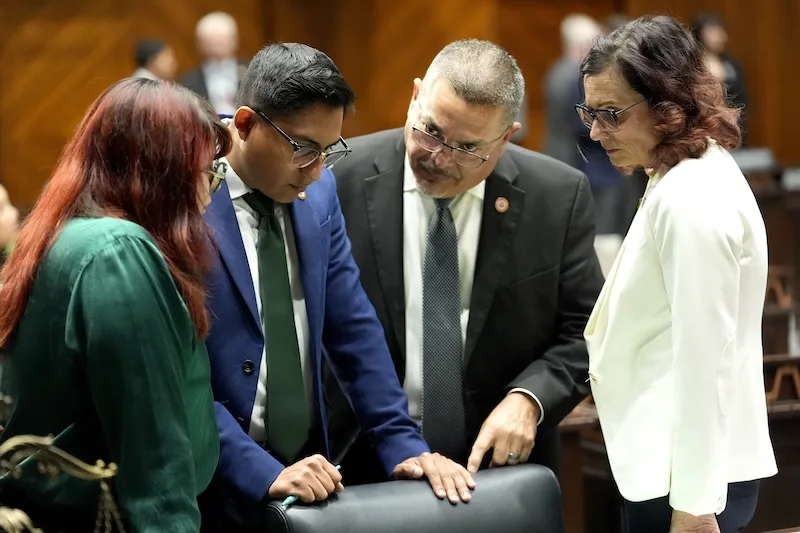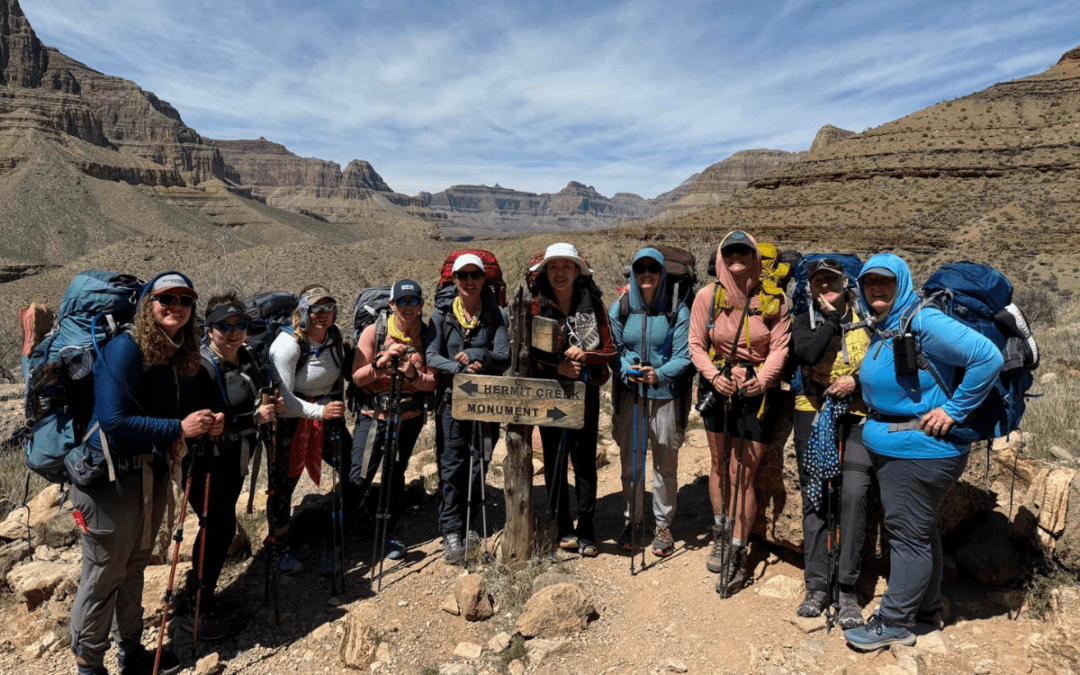
Four undocumented Phoenix residents arrested while protesting police brutality are scheduled for deportation due to Arpaio-era policies.
While it’s been nearly four years since Joe Arpaio lost reelection as the Maricopa County Sheriff, recent actions by county law enforcement have reignited accusations of racial bias that plagued the department throughout Arpaio’s 24-year tenure as Sheriff.
The incident occurred last weekend, when four undocumented Arizonans were arrested during a protest in downtown Phoenix against police brutality. They were among at least 300 others arrested throughout the state last weekend.
More than 100 protesters were arrested in Phoenix and held in booked into the Maricopa County jail in downtown Phoenix. The jail — which has an agreement with the U.S. Immigration and Customs Enforcement — planned to turn Roberto Cortés, Johan Montes Cuevas, Jesús Orona Prieto, and Máxima Guerrero over to ICE custody and transferred to the detention center in Eloy, Arizona, according to the human rights group Poder in Action.
In addition to facing criminal charges, the undocumented protestors who have arrested face deportation due to a decade-old agreement between local and federal law enforcement.
RELATED: Immigration Judges Say Their Courts Are a Health Hazard
“114 protesters were arrested by Phoenix Police Department,” Puente said in a statement put out on social media. “One of those arrested was Puente organizer Máxima Guerrero who was at the protests as a legal observer. Máxima was identified by Phoenix Police and pulled out of her vehicle and arrested without giving a probable cause.”
Guerrero, who works as a community organizer for the immigrant rights group Puente, is a recipient of the Deferred Action for Childhood Arrivals program aka DACA. Though an arrest does not revoke her DACA status, Guerrero could be barred from renewing her application if she is convicted.
Officials decry police action
Phoenix City Councilmember Carlos García, who led the immigration rights group prior to being elected onto the city council, says Guerrero’s actions at the protest do not warrant the threat of deportation.
“She shouldn’t have been arrested. She was heading home and got taken from her car after she had done legal observing and provided support for people at the protest,” Garcia said in a Facebook post Monday morning. “She could have been cited and released by Phoenix police, but instead was booked into 4th Avenue jail.”
RELATED: Phoenix Just Voted to Give More Power to Civilians Overseeing Police
García has long been an advocate for police reform and was a key figure in the creation of a civilian review board for police oversight. However, the panel does not oversee the county’s law enforcement operations, including the jail where Guerrero was held.
Guerrero was released from police custody Monday morning but is still in danger of deportation. According to García, the reason for this is the county’s collaboration with ICE. The councilmember has repeatedly called for Sheriff Paul Penzone to end his cooperation with the federal agency, but Penzone has refused to end the arrangement.
Arpaio’s legacy
The County’s cooperation with ICE stems from the days of former Sheriff Joe Arpaio, who served from 1993 until 2017. His hardline stance against immigrants led to several racial profiling lawsuits, which has already cost taxpayers more than $140 million in legal fees.
The 2013 verdict against Arpaio found that — under his direction — officers illegally profiled Latinos in traffic patrols targeting immigrants. Arpaio was then convicted of criminal contempt in 2017 for disobeying the court’s orders to end racial profiling practices while in office.
Above the law
While Arpaio’s immigration policies were found to be unconstitutional by the judicial system, the former sheriff’s unlawful practices found favor in the country’s top executive office.
President Donald Trump aligned his immigration views with Arpaio as early as 2015 when he had the Sheriff accompany him on stage during a campaign stop in Phoenix. The duo positioned themselves as immigration hardliners, making several claims about immigrants that were found to be inaccurate.
Trump’s support of Arpaio became a national controversy in 2017 when the president pardoned Arpaio’s criminal contempt conviction prior to sentencing. The President cited his Arpaio’s handling of immigration enforcement as justification for the pardon.
RELATED: Taxpayers on the Hook For Arpaio’s $178 Million Racial Profiling Case
While spared from punishment, U.S. District Judge Susan R. Bolton refused to reverse her ruling to convict Arpaio.
“To vacate all rulings in this case, would run afoul of this important distinction. The Court found Defendant guilty of criminal contempt,” Bolton wrote. She added that being pardoned did not, “‘revise the historical facts’ of this case.”
Slow to change
But even though Arpaio was voted out of office in 2016, a recent report on police stops conducted by county law enforcement still show signs of racial bias.
Traffic stops of Hispanic and Black drivers in metro Phoenix were more likely to last longer and result in searches than those of white drivers, according to a report on traffic enforcement by sheriff’s deputies during 2019.
The sheriff’s office is required to produce the studies as one of the remedies to its profiling verdict in 2013. The report released Wednesday echoes conclusions from past studies aimed at identifying signs of racial bias in stops by the Maricopa County Sheriff’s Office (MCSO), which seven years ago was found to have racially profiled Latinos in Arpaio’s traffic patrols that targeted immigrants.
The examination of 23,000 traffic stops made last year also concluded Hispanic drivers were more likely to receive citations or get arrested than white drivers. Though the study doesn’t conclude that officers are still profiling Latinos, it said the enforcement disparities are possible indications of unconscious racial bias.
“These disparities may indicate a systemic problem,” the report said.
No longer the new sheriff in town
Penzone, who defeated Arpaio in 2016, said the report will be used to help improve the agency’s practices and vowed to continue examining patrols to determine if officers are profiling drivers. “We are intolerant of any bias or discrimination,” Penzone said Thursday at a virtual public meeting.
It’s unclear how long it will take the sheriff’s office to rid itself of the problems that led to the uneven treatment of Hispanic and Black drivers. “The time frame is impossible to determine as cultural changes can be slow to evolve,” the sheriff’s office said.
Critics acknowledge Penzone has made more strides in overhauling the sheriff’s office than Arpaio, but insist the agency still suffers from the racial bias problems from its past.
Cultural overhaul
Raúl Piña — who serves on a community advisory board set up to help improve trust in the sheriff’s office — criticized the report for what he said was using euphemisms to describe discriminatory policing, when the study should have squarely called it racial profiling.
“Until you acknowledge that and stop calling it a technicality, then you have to live with that cancer,” Piña said. “It’s horrible.”
The American Civil Liberties Union of Arizona, which defeated the sheriff’s office in the profiling case, said the key to overhauling the agency is changing its work culture.
“People are tired of hearing excuses. MCSO cannot continue its discriminatory policies and must treat the community in an unbiased and dignified manner,” the advocacy group said.
The sheriff’s office has investigated 46 complaints from Hispanics who have alleged bias against its employees since June 2016. One officer was fired, a supervisor was demoted, and two employees who used racial slurs were suspended, Penzone said.
The report shows the total of traffic stops made by the agency, which had fallen sharply in recent years due to the profiling verdict, have generally been rising over the last year, though they are still well below the number of stops made in 2015. The drastic decrease in stops was due to worries among officers that they would be unfairly scrutinized over their decisions to pull over drivers, so many of them made far fewer stops.
But until the Sheriff’s Office ends its cooperation with ICE, groups like Puente say there is still work to be done.
The Associated Press contributed to this report.
Politics

Democrats clear path to bring proposed repeal of Arizona’s near-total abortion ban to a vote
Democrats in the Arizona Senate cleared a path to bring a proposed repeal of the state's near-total ban on abortions to a vote after the state's...

It’s official: Your boss has to give you time off to recover from childbirth or get an abortion
Originally published by The 19th In what could be a groundbreaking shift in American workplaces, most employees across the country will now have...
Local News

How Arizona women are helping each other gain confidence in outdoor adventuring
Two female-oriented outdoors groups in Arizona encourage women to get on the trails, and to not be afraid of doing it solo every once in a while....

Why these Arizona parents choose to take their kids to Drag Story Hour
Parents who seek out a safe, diverse, and inclusive space for their children to get involved in early literacy head to Drag Story Hour. Tania G.*...





